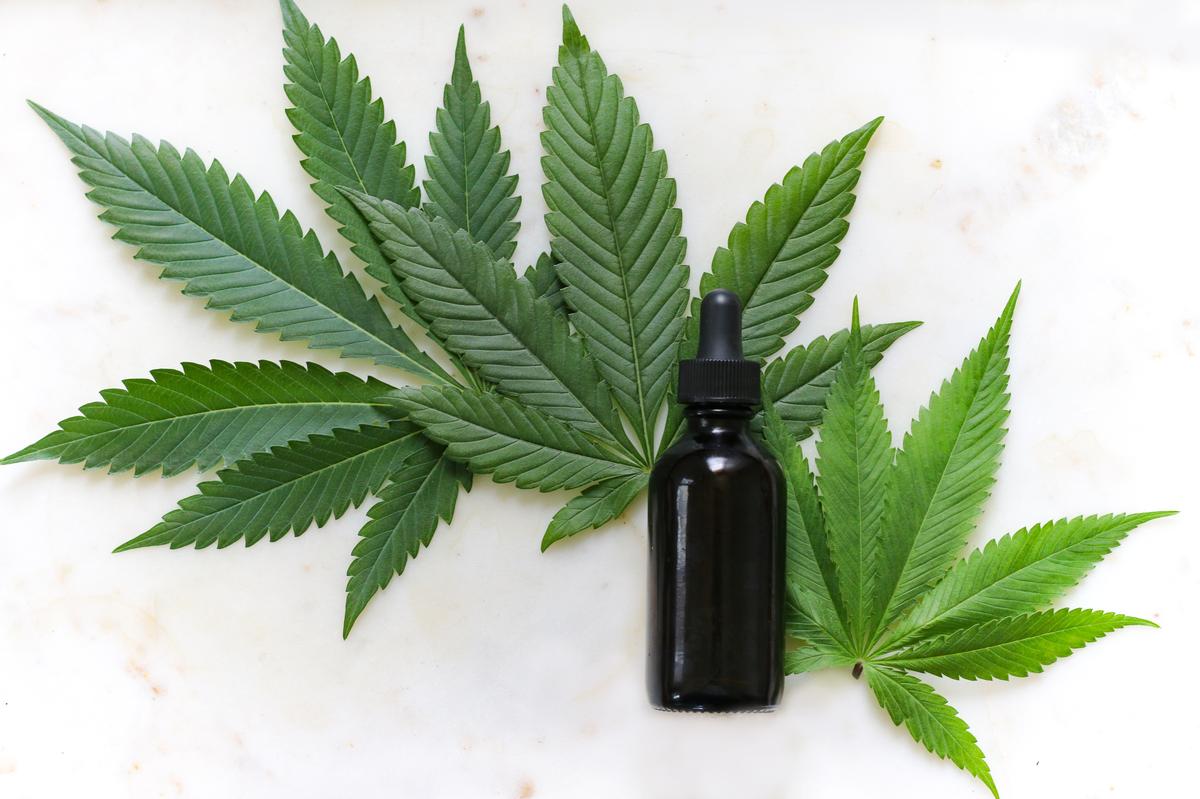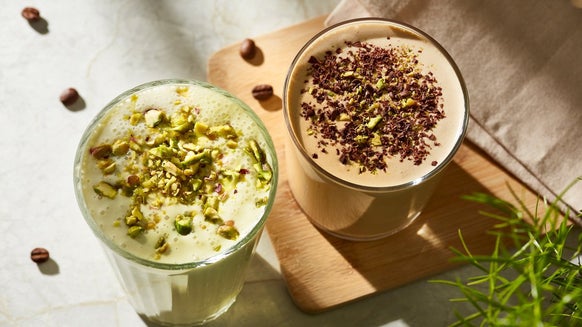CBD Oil — What Is It & What Does It Do?

You might feel like CBD is popping up everywhere — and you wouldn’t be wrong. It’s currently receiving a lot of attention as there are wide range of potential benefits being talked about.
So, is it just this year’s trend, or can it offer real benefits? Let’s discuss the possible ways it can be used to help you with your health and fitness goals.
In this article, you'll find:

What is CBD?
CBD stands for cannabinol and is the non-psychoactive cannabinoid found in cannabis.1 Cannabis contains two main cannabinoids — THC and CBD.1 THC is the psychoactive cannabinoid and is responsible for the negative psychological elements that cannabis use can cause. As CBD is non-psychoactive, some say that it can provide the medicinal benefits without the negative side effects.1
What does CBD do?
The potential medicinal benefits of CBD are related to your body’s endocannabinoid system (ECS). The ECS is made up of endocannabinoids, cannabinoid receptors and enzymes responsible for the synthesis of cannabinoids.2 The ECS is responsible for a number of biological processes leading scientists to develop their understanding of cannabinoids such as CBD.2
In your body, there are two main receptor-types for CBD. CB1, which is found in the central nervous system and CB2 which is found in peripheral systems such as the gut and bone systems.1 Due to the wide amount of receptor locations found in the body, CBD has been investigated for a number of potential benefits.

Dosage
How do I use CBD oil, what’s the best way to take CBD?
How you take it will depend on what your goal is and why you are using it. CBD comes in various forms such as edibles, tinctures, and topical CBD cream. So, read the recommended dosages on the package and consult a doctor for any further advice.
Can I vape CBD?
It is possible to vape CBD, however, vaping is a contentious issue and the evidence is inconclusive in regards to the long-term health effects.
Can I take CBD if taking other medications?
The evidence is currently inconclusive, so it is best to seek advice from GP and ask about the specific medication you are taking before you try CBD.
Summary
Side Effects
Will CBD make you tired?
One of the most reported side effects of CBD usage is tiredness. However, it may depend on the individual and the dosage.
Can you get high off CBD?
As the CBD is a non-psychoactive cannabinoid, you won’t get any feelings of euphoria or sedation. However, this may not be the case for a small minority people as you never know how your body will react to a certain supplement for the first time.
Is CBD oil harmful?
The main reported side effects of CBD are tiredness, diarrhoea, and changes in appetite/weight. The research looking into the interaction with other drugs is still in its early stages, so caution must be used when taking other medication. Additionally, it’s still unclear what affect CBD may have on hormones.
Take Home Message
Whilst research has shown encouraging signs for a wide range of potential benefits to CBD supplementation, most of this has been done in a clinical setting and it’s hard to say how applicable it may be to healthy individuals trying to improve their fitness or reach sport-related goals.
However, the range of potential benefits most pertinent to fitness include improvements in sleep, pain relief, weight management and a reduction in gastrointestinal symptoms.
There have been a number of side effects reported which include diarrhoea, tiredness, and changes in appetite/weight. This may be down to the individual and the dosage.
The evidence is still unclear in how CBD reacts to other drugs, so it’s important to consult with your GP if you are taking any other medication.

Liam is a certified sport nutritionist with the International Society of Sport Nutrition and is enrolled on the British Dietetics Association’s Sport and Exercise Nutrition register. He has a Bachelor’s of Science in Sport and Exercise Science and is graduate of the ISSN Diploma in Applied Sport and Exercise Nutrition.
Liam is an experienced personal trainer, helping clients reach their health and fitness goals with practical, evidence informed exercise and nutrition advice. In his spare time Liam has competed in numerous powerlifting competitions and enjoys hill walking, football and expanding his recipe repertoire in the kitchen.Find out more about Liam's experience here.
1. Fine, P. and Rosenfeld, M. (2013). The Endocannabinoid System, Cannabinoids, and Pain. Rambam Maimonides Medical Journal, 4(4).
2. Kuhathasan, N., Dufort, A., MacKillop, J., Gottschalk, R., Minuzzi, L. and Frey, B. (2019). The use of cannabinoids for sleep: A critical review on clinical trials. Experimental and Clinical Psychopharmacology, 27(4), pp.383-401.
3. Alvarez, G. G., & Ayas, N. T. (2004). The impact of daily sleep duration on health: a review of the literature. Progress in cardiovascular nursing, 19(2), 56-59.
4. Fletcher, B., Twist, C., Haigh, J., Brewer, C., Morton, J. and Close, G. (2015). Season-long increases in perceived muscle soreness in professional rugby league players: role of player position, match characteristics and playing surface. Journal of Sports Sciences, 34(11), pp.1067-1072.
5. Miller, RJ., Miller, RE., (2017). Is cannabis an effective treatment for joint pain? Clin Exp Rheumatol.2017 Sep-Oct;35 Suppl 107(5):59-67
6. Pugh, J., Fearn, R., Morton, J. and Close, G. (2017). Gastrointestina lsymptoms in elite athletes: time to recognise the problem?. British Journal of Sports Medicine, 52(8), pp.487-488.
7. Couch, D., Cook, H., Ortori, C., Barrett, D., Lund, J. and O’Sullivan, S. (2019). Palmitoylethanolamide and Cannabidiol Prevent Inflammation-induced Hyperpermeability of the Human Gut In Vitro and In Vivo—A Randomized, Placebo-controlled, Double-blind Controlled Trial. Inflammatory Bowel Diseases, 25(6), pp.1006-1018
8. Kirkham, T. (2009). Cannabinoids and appetite: Food craving and food pleasure. International Review of Psychiatry, 21(2), pp.163-171.
9. Díaz-Arteaga, A., Vázquez, M., Vazquez-Martínez, R., Pulido, M., Suarez, J., Velásquez, D., López, M., Ross, R., de Fonseca, F., Bermudez-Silva, F., Malagón, M., Diéguez, C. and Nogueiras, R. (2011). The atypical cannabinoid O-1602 stimulates food intake and adiposity in rats. Diabetes, Obesity and Metabolism, 14(3), pp.234-243.








